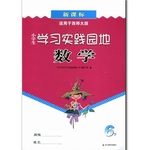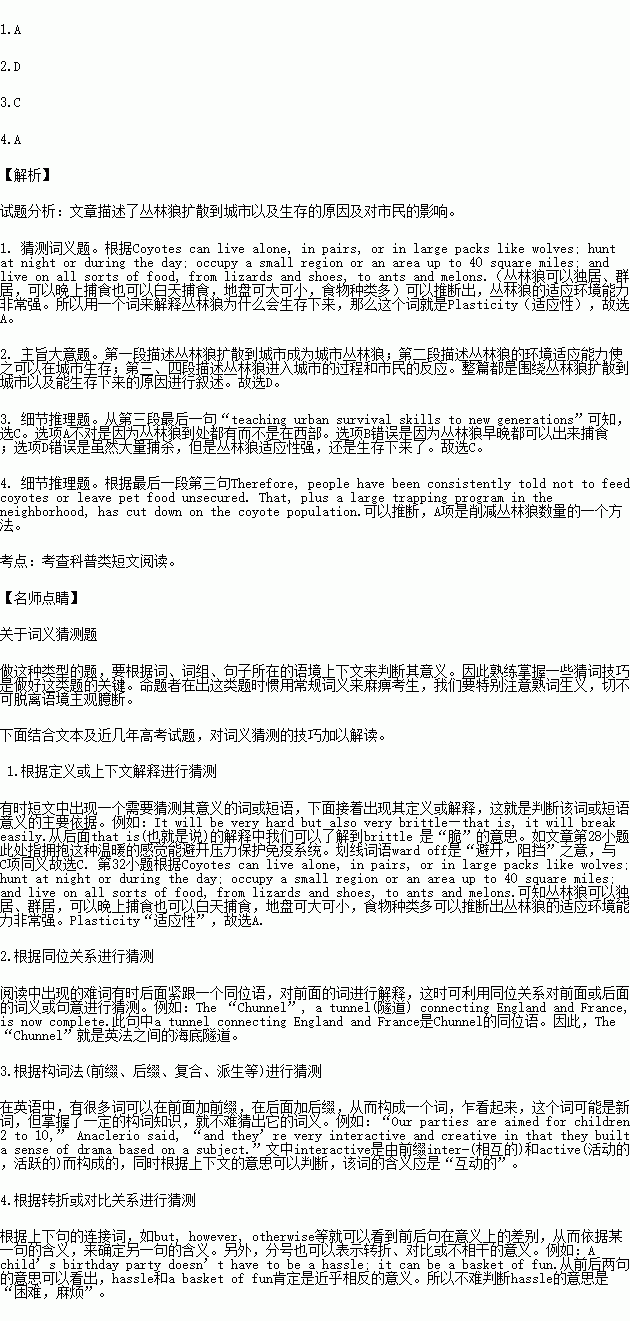题目内容
The coyote (丛林狼), that clever animal of wide-open spaces, has come to the nation’s capital. In fact, coyotes have spread to every corner of the United States, changing their behaviors to fit new environments and causing researchers to deal with a troublesome new kind of creature: the city coyote.
The coyote originally lived in the middle of the continent. One of its most obvious characters is its smartness, which has made the animal a notorious (臭名昭著的) pest. Hunters trapped, shot and poisoned more than a million coyotes in the 1900s. It’s still one of America’s most hunted animals. Yet the coyote has survived. How has the coyote shown this extraordinary ability? “I guess if you wanted to use one word, it’d be ‘plasticity’,” says Eric Gese, an expert at Utah State University. Coyotes can live alone, in pairs, or in large packs like wolves; hunt at night or during the day; occupy a small region or an area up to 40 square miles; and live on all sorts of food, from lizards and shoes, to ants and melons.
Unbelievably people helped coyotes increase when they killed most of the wolves in the United States. The spreading of coyotes into city areas, though, is recent. They travel at night, crossing sidewalks and bridges, running along roads and ducking into culverts (钻入涵洞) and underpasses. No one knows why coyotes are moving into cities, but experts explain that cleverer, more human-tolerant (不怕人的) coyotes are teaching urban survival skills to new generations.
Occasionally, coyotes might attack human beings. There have been about 160 attacks on people in recent years. Therefore, people have been consistently told not to feed coyotes or leave pet food unsecured. That, plus a large trapping program in the neighborhood, has cut down on the coyote population.
1.The underlined word “plasticity” in Paragraph 2 refers to ________.
A. the ability to fit the environment
B. notorious smartness
C. hunting ability
D. being human-tolerant
2.The aim of the passage is to ________.
A. tell people how to fight against coyotes
B. tell us why the coyote is the most hunted animal
C. supply the reason why the coyote is a kind of notorious pest
D. explain how the coyote has spread to and survived in cities
3.According to the passage, coyotes ________.
A. originally lived in the west of the continent
B. sleep during the day but look for food at night
C. are teaching survival skills to their younger generations
D. suffered a population decrease because people killed wolves
4.According to the passage, to cut down on the coyote population, people are advised to ________.
A. leave pet food securedB. keep coyotes in small regions
C. force coyotes to live aloneD. avoid using trapping programs
 仁爱英语同步练习册系列答案
仁爱英语同步练习册系列答案 学习实践园地系列答案
学习实践园地系列答案
